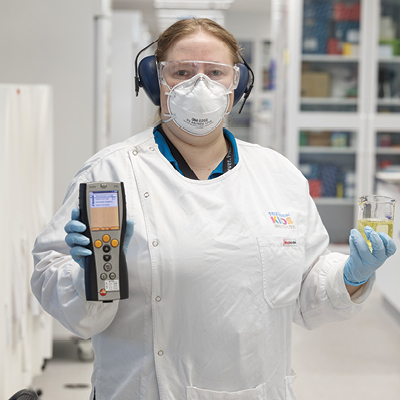Search
Research
The Safety of Alcohol Pharmacotherapies in Pregnancy: A Scoping Review of Human and Animal ResearchAlcohol pharmacotherapies pose unknown teratogenic risks in pregnancy and are therefore recommended to be avoided. This limits treatment options for pregnant individuals with alcohol use disorders (AUD). The information on the safety of these medications during pregnancy is uncertain, prompting a scoping review. The objective of this review was to investigate available information on the safety of alcohol pharmacotherapies in pregnancy.
Research
Feto-placental vascular structure and in silico haemodynamics: Of mice, rats, and humanThe complex arborization of the feto-placental vasculature is crucial for optimal fetal nutrition, waste exchange and ultimately, development. Ethical and experimental limitations constrain research into the human placenta, hence experimental animal models such as mice and rats, are crucial to understand placental function. It is unclear how well the mouse and rat feto-placental vascular structure emulates human. Moreover, the implications of differences in vascular structure, especially in arborization, for placental function remain unclear.
Research
Predictive gene expression signature diagnoses neonatal sepsis before clinical presentationNeonatal sepsis is a deadly disease with non-specific clinical signs, delaying diagnosis and treatment. There remains a need for early biomarkers to facilitate timely intervention. Our objective was to identify neonatal sepsis gene expression biomarkers that could predict sepsis at birth, prior to clinical presentation.

In a world being urged to embrace renewable options, biodiesel fuels are increasingly being touted as a greener, cleaner choice than traditional diesel.
Research
Global Lung Function Initiative reference values for multiple breath washout indicesMultiple breath washout is a lung function test based on tidal breathing that assesses lung volume and ventilation distribution. The aim of this analysis was to use the Global Lung Function Initiative methodology to develop all-age reference equations for the multiple breath washout indices lung clearance index and functional residual capacity.
Research
Association between early respiratory viral infections and structural lung disease in infants with cystic fibrosisInfants with cystic fibrosis (CF) develop structural lung disease early in life, and viral infections are associated with progressive lung disease. We hypothesized that the presence of respiratory viruses would be associated with structural lung disease on computed tomography (CT) of the chest in infants with CF.
Research
Comparison of home ambulatory type 2 polysomnography with a portable monitoring device and in-laboratory type 1 polysomnography for the diagnosis of obstructive sleep apnea in childrenTo compare type 2 polysomnography (T2PSG) to the gold standard type 1 in-laboratory polysomnography (T1PSG) for diagnosing obstructive sleep apnea (OSA) in children; validate home T2PSG in children with suspected OSA.

News & Events
Toxic, harmful chemicals found in popular Australian e-liquidsPerth researchers have found toxic and harmful chemicals in several dozen e-cigarette liquids readily available in Australia.
Research
Minimal structural lung disease in early life represents significant pathologyIn this cohort, as compared with the AREST CF cohort, the authors highlight the limited correlation between infection and inflammation with lung function and structural impairment, and that this was mainly explained by the mild changes identified in lung function and on chest CT scan.
Research
The potential of antisense oligonucleotide therapies for inherited childhood lung diseasesAntisense oligonucleotides are an emerging therapeutic option to treat diseases with known genetic origin. In the age of personalised medicines, antisense oligonucleotides can sometimes be designed to target and bypass or overcome a patient's genetic mutation, in particular those lesions that compromise normal pre-mRNA processing. Antisense oligonucleotides can alter gene expression through a variety of mechanisms as determined by the chemistry and antisense oligomer design.
